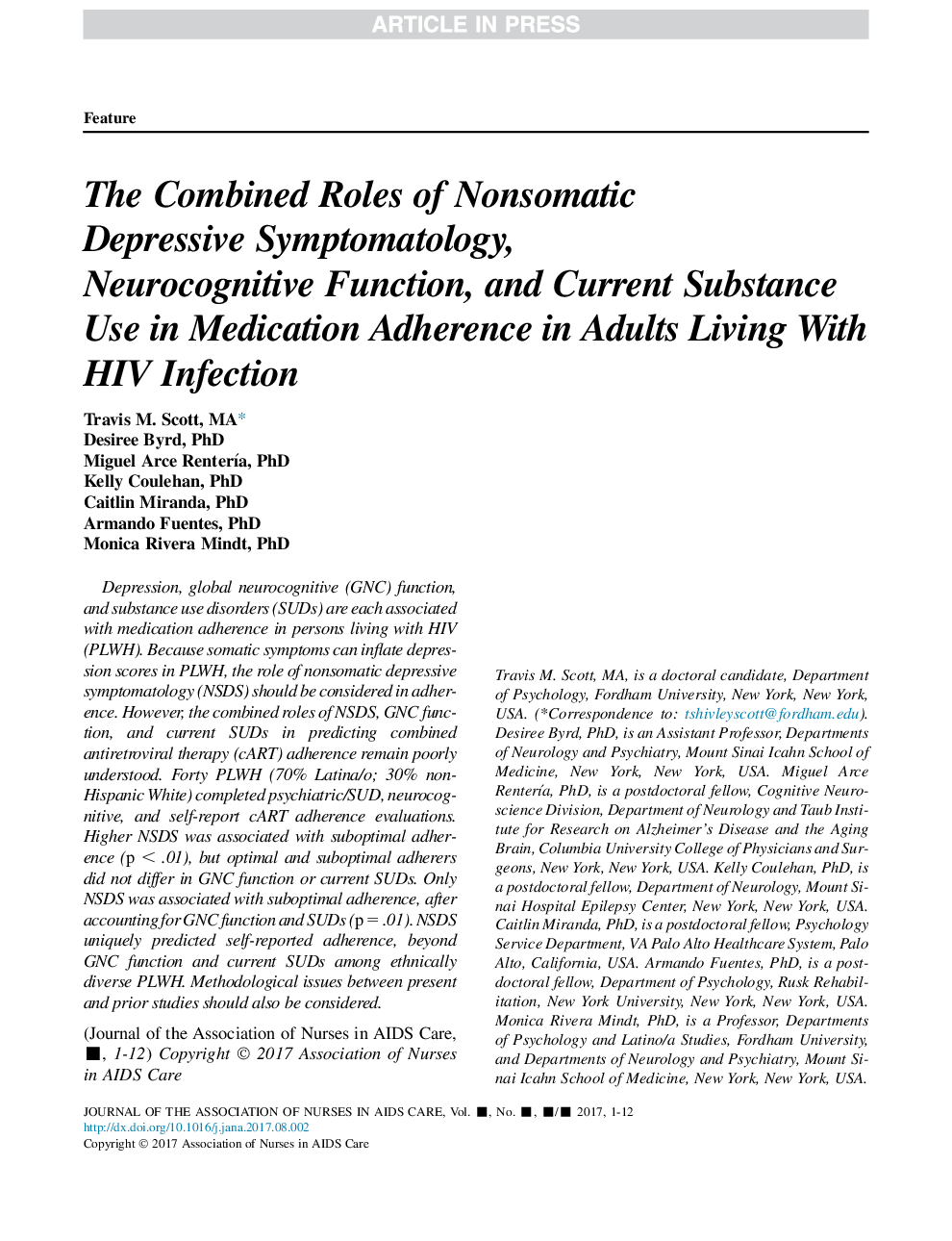| Article ID | Journal | Published Year | Pages | File Type |
|---|---|---|---|---|
| 8572550 | Journal of the Association of Nurses in AIDS Care | 2018 | 12 Pages |
Abstract
Depression, global neurocognitive (GNC) function, and substance use disorders (SUDs) are each associated with medication adherence in persons living with HIV (PLWH). Because somatic symptoms can inflate depression scores in PLWH, the role of nonsomatic depressive symptomatology (NSDS) should be considered in adherence. However, the combined roles of NSDS, GNC function, and current SUDs in predicting combined antiretroviral therapy (cART) adherence remain poorly understood. Forty PLWH (70% Latina/o; 30% non-Hispanic White) completed psychiatric/SUD, neurocognitive, and self-report cART adherence evaluations. Higher NSDS was associated with suboptimal adherence (p < .01), but optimal and suboptimal adherers did not differ in GNC function or current SUDs. Only NSDS was associated with suboptimal adherence, after accounting for GNC function and SUDs (p = .01). NSDS uniquely predicted self-reported adherence, beyond GNC function and current SUDs among ethnically diverse PLWH. Methodological issues between present and prior studies should also be considered.
Related Topics
Health Sciences
Medicine and Dentistry
Infectious Diseases
Authors
Travis M. MA, Desiree PhD, Miguel PhD, Kelly PhD, Caitlin PhD, Armando PhD, Monica PhD,
